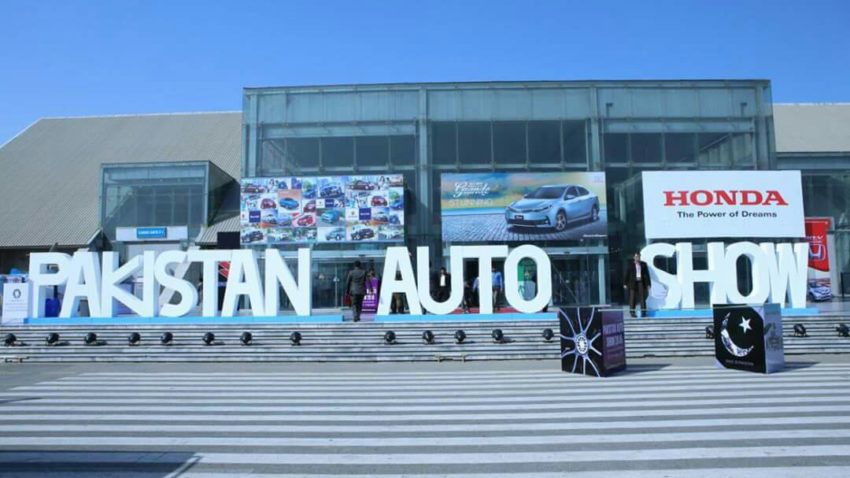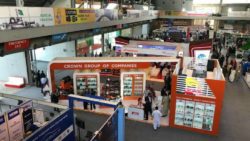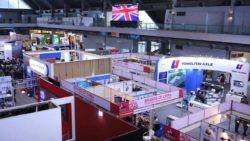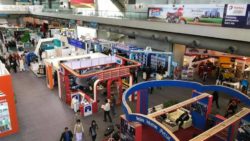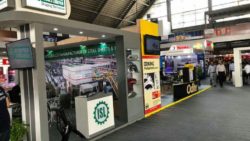The demand for automobiles in Pakistan is rising annually as personal incomes in the country stay high. Foreign and domestic investment in Pakistan’s auto industry has increased significantly as demand for cars is accelerating at a rapid speed.
Iftikhar Ahmad, chairman, Pakistan Association of Automotive Parts and Accessories Manufacturers (Paapam), said at the recently concluded Pakistan Auto Show-2018 in Lahore:
“The investment in the Pakistan-based auto manufacturing industry has risen to Rs370 billion. The auto industry is contributing revenue worth Rs110 billion per year to the Pakistan government, while it has achieved import substitution of $3.3 billion a year, besides generating foreign exchange of $210 million a year through exports.”
The auto sector is one of the few high-performing industries in Pakistan, while most others businesses suffered from complete shutdown to huge losses. Domestic demand for automobiles is rising annually as personal incomes in the country stay high. The government is happy at the auto industry’s performance because it is generating rising tax revenues every year.
Car production rose to 50,000 in 2011-12 and it climbed 5 times to 250,000 in 2013-14. The auto industry plans to raise the output to 350,000 units by 2019-20 to feed both growing domestic demand and the economies of the UAE, Saudi Arabia and Eastern Africa, while a part of it will go to ASEAN as well.
Naveed Ahmad, an investor, manufacturer and exporter of high-tech auto spare parts to the US, France, UK and China, told Khaleej Times:
“A number of foreign auto manufacturers who have unveiled plans to start manufacturing automobiles in Pakistan are likely to nearly double investment in the next couple of years. France’s Renault, Germany’s Volkswagen and South Korea’s Hyundai & KIA have either started establishing their plants in Pakistan or have received permission to do so. They are granted concessions such as tax-free investment and other benefits, including provision of low-priced land for their plant. These automakers also are allowed to repatriate their annual profits or even their entire investment if they so desire.”
The Autoshow-2018 has grown in size. It had 203 exhibitors, including 125 domestic and 78 foreign ones. Its key international participants included the UAE, US, Japan, China, Germany, France, UK, Turkey, Thailand, Taiwan and Sri Lanka. The rising role of Pakistan auto parts manufacturers and exporters attracted 300 international buyers. Large auto industry delegations from Sparex UK, MAN Diesel, TVH Belgium and NRB Thailand participated in the show.
Ashraf Sheikh, senior vice-president of PAAPAM, said:
“The demand for automobiles is expected to rise continuously over the next 3 to 4 years. It will attract fresh investment and increase capacity building to meet expected demand. The industrial base of the auto industry consists of sheet metal parts, plastic injection and blow molding, rubber components, steel forging and machining foundry and casting, aluminum die casting and machining, and electrical and electronics. We are moving ahead in all these areas in view of the growing demand from the auto industry. There is a need to work on multiple fronts to achieve our growth objectives.”
Muhammad Salim, outgoing chairman of PAAPAM, highlighted that the auto industry has achieved 75% localization in cars, 96% in tractors, 96% in motor cycles and 80% in three-wheelers.
At the Auto Show, Regal Automobile Industries Limited (RAIL), Pakistan’s third largest bike assembler, announced that it will start manufacturing 5,000 light commercial vehicles from April 2018. RAIL chairman Sohail Usman said:
“We have invested Rs800 million in the plant. We have signed a technical collaboration agreement with China’s DFSK group to assemble these vehicles under the name Prince. 5,000 vehicles will be produced on a single-shift basis. The production capacity will be doubled to 10,000 vehicles during the second shift. There is soaring demand for commercial vehicles in the wake of the ongoing implementation of the China Pakistan Economic Corridor (CPEC).”
The CPEC is being implemented with an investment of $61 billion by the two countries which will connect Western China to the Pakistani port of Gwadar, via the Central Asian Republic and Afghanistan located on the Arabian Sea, and next to Dubai in the south and Turkey, EU and UK in the north-west.
The Auto Policy 2016-21 has opened up doors for a good number of auto manufacturers to explore Pakistan automobile market. There is a huge influx of commercial vehicles in the wake of CPEC. While the passenger vehicle segments is also expected to see plenty of flavor in coming months.
From Khaleej Times

A computer animation professional with over 23 years of industry experience having served in leading organizations, TV channels & production facilities in Pakistan. An avid car enthusiast and petrolhead with an affection to deliver quality content to help shape opinions. Formerly written for PakWheels as well as major publications including Dawn. Founder of CarSpiritPK.com

